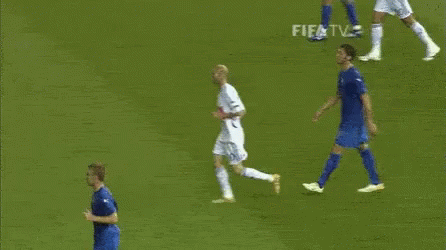Reading about The Beautiful Game Pt. 1
To watch, or not to watch The 2022 World Cup. THAT is that is the question.
Whether ‘tis nobler to ignore the monthlong competition born of corrupt, inhumane circumstances that brought about this unnatural (a World Cup in November?!) event or watch and feel icky…
Am I doing too much? Probably, but football or soccer tends to bring that out in me. My first taste of soccer was when I “played” on a team as a kid. I was bad, as most kids are at sports that require strategy and skill, more concerned with picking grass and daydreaming.
It wasn’t until I got to college at the University of Oklahoma of all places and became friends with the international students and students from different backgrounds that I began learning about the rich history of this sport.
J/k, I fell in love with this handsome man and his beautiful game, and the team, Arsenal FC, “by far, the greatest team, the world has ever seen.” When he decamped for Barcelona (2007 :( ) I decided I had two teams and never looked back. COYG and Visca Barça!
I can mark pivotal moments in my life based on big things that happened during World Cup years:
2006. Germany. This World Cup marked the first time I ever cursed in front of my religious, Southern parents. In my defense, I had never seen anything as wild as a grown man HEADBUTTING another grown man. What would compel a grown man to react in that way?
“As they left the penalty area, Materazzi claims Zidane said: “If you want my shirt, you can have it after the game.” But Materazzi already had a Zidane jersey...“[He] replied that [he’d] rather have [Zizou’s] sister,” Materazzi revealed. He thought nothing of it. To him it was the kind of trash-talk you heard in the schoolyard or, in an Italian context, at the oratory. A throwaway line. But it hit a nerve with Zidane. ”
You had to be there.
2010. South Africa. The universe descended on South Africa and had a chance to revel in the new “Rainbow Nation”. The world, nay, the galaxy was introduced to vuvuzelas and the game was never the same. This 99% Invisible episode talks about the vuvuzela and it place in South Africa’s football culture.
2014. Brazil. This was the summer I bonded with my now spouse by watching all of the U.S. Men’s National Team (USMNT) matches in Washington, D.C. one of the best U.S. cities to participate in soccer culture. I also had the best colleagues who let me scam my way into co-writing an essay about higher education attainment globally. The semi-final was hilarious (to me) because Germany beat the brakes off Brazil (long recognized as a football powerhouse) 7-1. Hate to see it.
This World Cup faced a lot of deserved criticism for the way that it harmed Brazilians and didn’t garner the economic successes that municipalities always promise cities, states, and nations that host huge sporting matches. This article from the World Economic Forum disputes the wisdom of ever ever ever hosting an Olympics or World Cup. The tl;dr: “Don’t do it. Reconsider, read some literature on the subject.
2018. Russia. Senegal, my African équipe of chose stole hearts because of how dapper their coach Aliou Cissé was and is and the excellent quality of play from the best African team.
France, my adopted team, won its second star. The young king Kylian Mbappe dazzled the world and proclaimed he had next and now. Black Twitter called Les Bleus an African team and the French scoffed. Look, Black Panther had come out earlier that year Annnnnnd France’s team was hella Black. would have thought that I had personally won with how I celebrated.
Which brings us to 2022. Qatar. I’ll get to that mess in Part 2.
In the meantime, these are three of my favorite books on soccer.
1) Soccernomics: Why European Men and American Women Win and Billionaire Owners are Destined to Lose x Stefan Szymanski is such a nerdy, fun book that answers questions that casual observers and new fans might have and that longtime watchers have always pondered. I read the first iteration in 2009 and the 2022 version updates some of their previous predictions and touches on the mess world football finds itself in now. It’s a must-read and also a great gift.
2) Soccer in Sun and Shadow x Eduardo Galeano. The prose in this is so, so lovely. Galeano elevates the sport through his prose and the literary lens he turns on it and the characters. He really shows the depth of the beautiful game and why it entrances billions of people around the globe week in and week out and especially every 4 years during the World Cup. Analysis of this new era of the game and especially this World Cup are diminished because he’s no longer here.
3) Fever Pitch x Nick Hornby. Essential reading for Arsenal fans or Gooners. It’s a book that makes me feel less absurd for waking up at 4:00 am to watch 11 young adults run back and forth for 90 minutes and provides a glimpse of English soccer right before the new era of global football.





